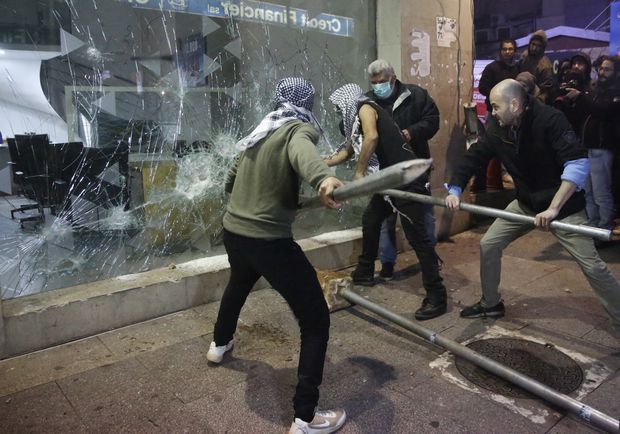U.N. official blames politicians for “dangerous chaos” in Lebanon
Beirut (Reuters) – Lebanese politicians are to blame for the country’s economic collapse, a senior U.N. official said on Wednesday, rebuking a ruling elite that has failed to draw up a rescue plan for a country hit by more violent protests.
With banks tightly limiting access to cash, lenders were targeted overnight by demonstrators in Beirut’s Hamra district. Bank facades and ATMs were smashed and dozens of people wounded in confrontations with police.
On Wednesday afternoon, angry protesters lit fires on a main thorougfare in central Beirut, briefly closing it.
Heavily indebted Lebanon has struggled since the government was toppled by the resignation of Prime Minister Saad al-Hariri in October as a result of protests against corruption and bad governance that are root causes of the economic problems.
Political rivalries have obstructed a deal on a new cabinet as the crisis hits ordinary people: the Lebanese pound has lost around half of its value while anger at banking controls have led to rows and violence in branches.
“Another day of confusion around the formation of a government, amidst the increasingly angry protests and free-falling economy,” Jan Kubis, U.N. special coordinator for Lebanon, wrote on Twitter. “Politicians, don’t blame the people, blame yourselves for this dangerous chaos.”
Kubis appeared to credit central bank governor Riad Salameh, saying he had sought “extraordinary powers to at least somehow manage the economy while those responsible watch it collapsing”.
“Incredible,” he wrote.
Salameh asked for extra powers last week, saying he wanted to standardize banking controls. The finance ministry has asked him to specify what those extra powers were.
Looking to assure anxious depositors, parliament speaker Nabih Berri said work was under way to safeguard people’s money, especially small depositors and those of expatriates, without specifying further.



